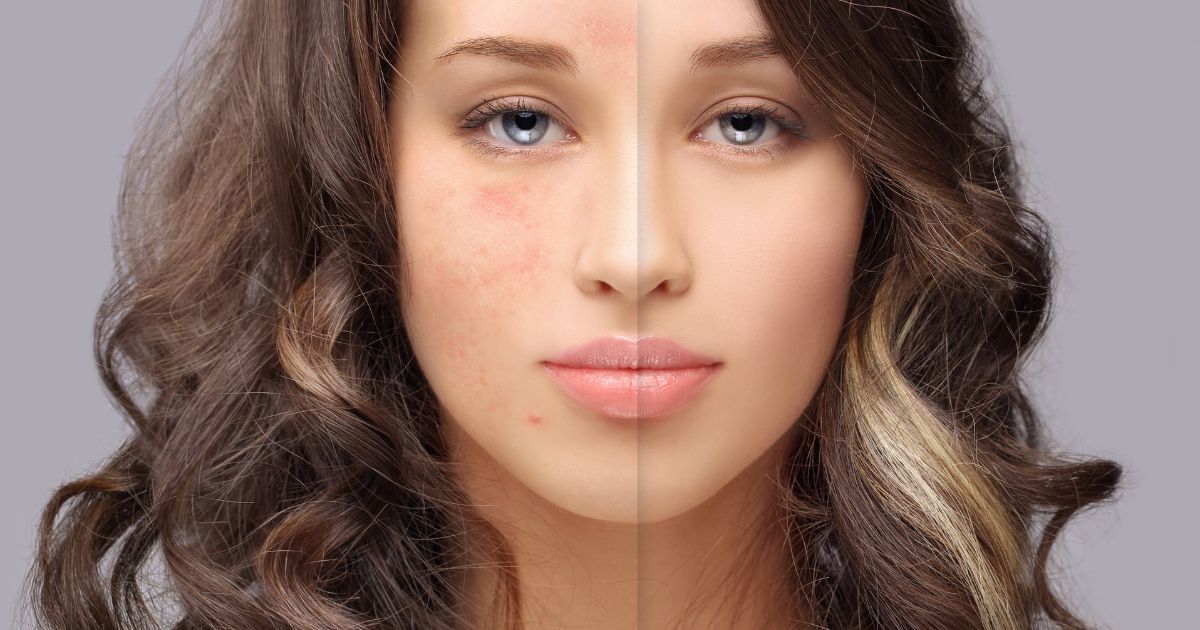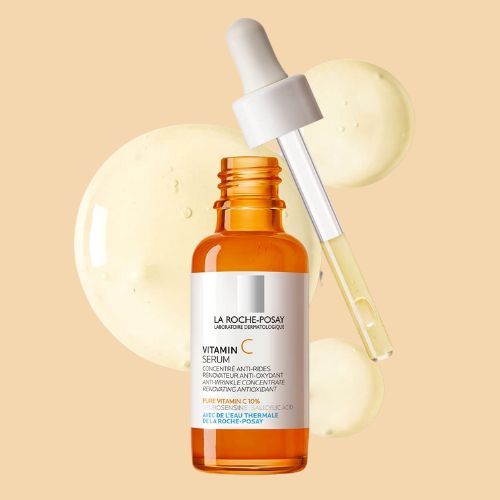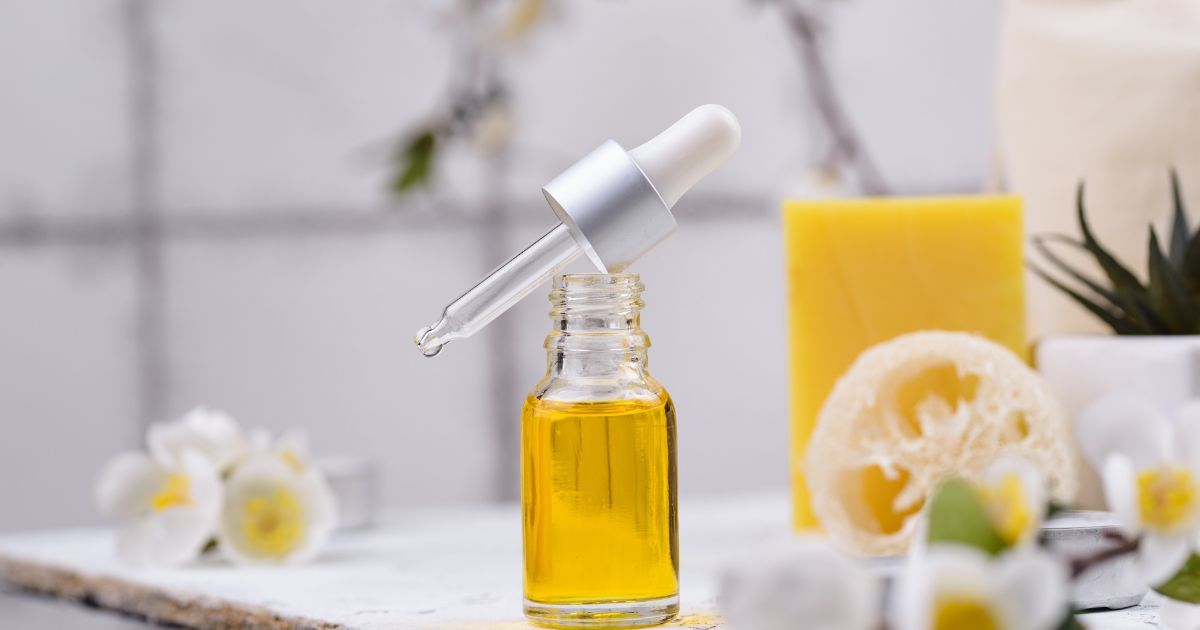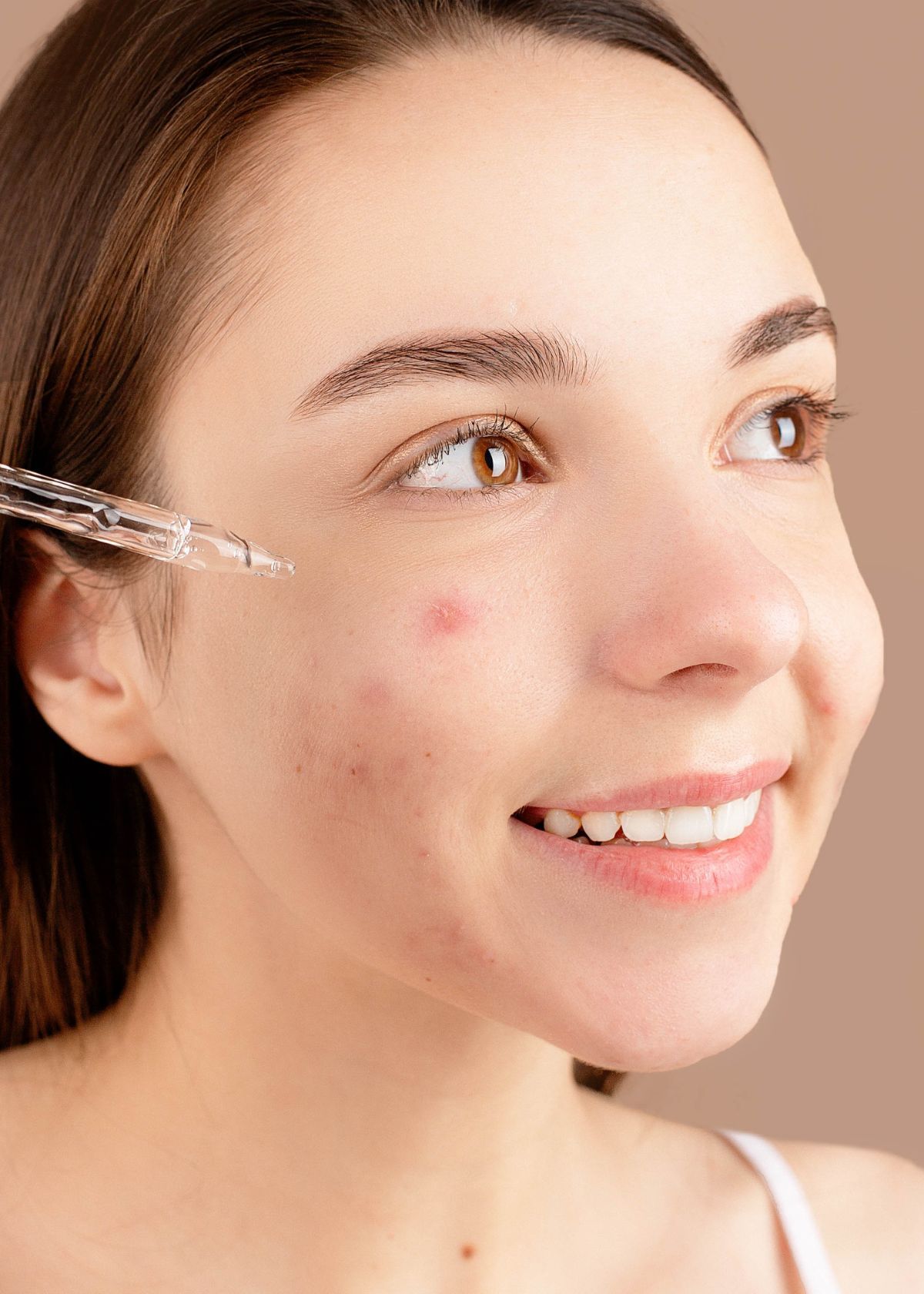If you're like most people, you've probably heard that vitamin C is good for you, but you're not sure what it can do for your skin.
Acne is a common problem for people of all ages, and if left untreated, it can lead to scars.
Vitamin C is a powerful antioxidant that can help to improve the appearance of acne-prone skin. It helps to reduce inflammation and promote collagen production.
What Is Vitamin C?
Before we can talk about the benefits of vitamin C for acne-prone skin, it’s important to understand what vitamin C is and what it does.
Also known as L-ascorbic acid, vitamin C is an essential nutrient found in many fruits and vegetables. It plays an important role in helping the body form collagen and absorbs iron, among other functions.
It also has a variety of antioxidant properties that can help protect cells from damage caused by free radicals.
Does Vitamin C Help With Acne

The short answer is yes—vitamin C may be beneficial for people with acne-prone skin. For example, since vitamin C is an antioxidant, it can help reduce inflammation and protect cells from oxidative damage caused by UV rays—both of which can be factors in breakouts.
Additionally, vitamin C has been shown to help promote healthy collagen production, which may result in fewer wrinkles over time.
In addition to being taken orally as a supplement or applied topical vitamin C through serums or creams, some studies suggest that consuming foods high in vitamin C—like oranges or bell peppers—may also help reduce the severity of breakouts.
However, more research needs to be done before any definitive conclusions can be drawn here.
How Does Vitamin C Help with Acne

Vitamin C is known to do wonders when it comes to skincare. It helps boost collagen production—which helps decrease wrinkles and age spots—and increases your skin’s elasticity, making it look healthier overall.
But did you know that Vitamin C can also help clear up acne and leave healthy skin? It works by reducing inflammation and redness in the skin, which helps reduce the appearance of acne-causing bacteria.
Furthermore, Vitamin C has anti-bacterial properties that can help kill any remaining bacteria on the skin that might cause breakouts. It also prevents acne scarring and cystic acne. So, use Vitamin C in your skincare routine.
If you want to take advantage of all the benefits that vitamin C has to offer, then you should make sure you’re getting enough of it in your diet.
Fortunately, there are plenty of foods out there that are packed with vitamin C. Citrus fruits like oranges and grapefruits are great sources of vitamin C; other options include bell peppers, broccoli, kale, and even tomatoes (yes, tomatoes!).
There are also many supplements available at health food stores if eating all those fruits and veggies doesn’t sound appealing.
Just remember not to overdo it; too much vitamin C can have negative effects on your health.
Note: We do not recommend or suggest you take Vitamin C supplements without seeking proper consultation from your doctor or physician.
What to Look For in A Vitamin C Serum for Acne

According to the Journal of Clinical and Aesthetic Dermatology, vitamin C serums are packed with antioxidants and can help reduce inflammation and improve skin tone. But how do you know which one is right for you?
Here's what to look for in a vitamin C serum for acne-prone skin.
Look for Quality Ingredients
When it comes to skincare, quality ingredients are key. Look for a serum that contains natural ingredients like Vitamin E, aloe vera, and hyaluronic acid.
These ingredients will help nourish your skin and reduce inflammation caused by acne. Also, make sure the vitamin C is derived from natural sources like oranges or lemons - synthetic versions are not as effective!
Choose Your Formula Wisely
Vitamin C serums come in a variety of forms, so it's important to choose the one that works best with your skin type.
For example, if you have dry or sensitive skin, opt for a serum with an oil base; this will help lock in moisture and keep your skin hydrated throughout the day.
If you have oily or combination skin, choose a water-based formula - this will absorb quickly into your pores without leaving behind any greasy residue.
Check Concentration Levels
Not all vitamin C serums are created equal - some contain higher concentrations of active ingredients than others.
Generally speaking, serums containing more than 10% vitamin C should be avoided as they may be too harsh on your skin; instead, opt for one containing 5-10%.
This will still provide the same benefits without causing any irritation or discomfort.
Moreover, you don't have to spend hours looking for the right Vitamin C serum for your acne-prone skin. We have done all the research and found the best Vitamin C serum for you.
You can also read our guide on the best vitamin C body lotions in case you need any of them in the future.
So, here is our top pick for the best vitamin C serum for acne-prone skin:

La Roche-Posay Vitamin C Serum
If you have acne-prone, sensitive skin, then look no further than La Roche-Posay Pure Vitamin C Serum with Salicylic Acid to combat wrinkles and uneven skin texture. This anti-aging serum is perfect for those seeking a brighter complexion and more even-toned skin. Plus, it's gentle enough for even the most delicate of skin.
How to Use A Vitamin C Serum?

A lot of people don't know how to properly use a Vitamin C serum, and as a result, they don't see the results they're hoping for.
If you're not using your Vitamin C serum correctly, then you're not getting the full benefits that it can offer.
Here's how to use a Vitamin C serum for the best results:
Step 1: Cleanse Your Skin
Before applying any product to your face, it's important that you cleanse your skin first.
It will ensure that there are no impurities on the surface of your skin that could interfere with the absorption of the serum.
For best results, use a gentle cleanser tailored to your skin type (e.g., oily, combination, sensitive).
Step 2: Apply Your Serum
Once your skin is clean, apply two or three drops of serum to your face and gently massage it using circular motions until it's completely absorbed. Don't skip this step!
Gently massaging in the serum helps it absorb better into your skin so you can reap all its benefits.
Step 3: Follow Up With Moisturizer
Finally, finish off by applying a moisturizer to seal everything in. Choose one that works well with your particular skin type.
If you have dry or sensitive skin, opt for something hydrating and nourishing such as an oil-based moisturizer.
If you have oily or combination skin, choose something light and non-greasy, like a gel-based moisturizer.
Is Vitamin C Good for Acne Prone Skin - FAQs
If you’re looking for an all-natural way to reduce the appearance of your acne scars, then vitamin C may be a good option for you.
This FAQ section will give you more information about how vitamin C can help improve your skin health.
Can taking vitamin C cause acne?
No. There is no scientific evidence that vitamin C causes acne. However, there are some reports of people who have experienced breakouts after taking large doses of vitamin C (3,000 mg or more per day).
Is vitamin C good for skin and acne?
Yes, vitamin C is great for skin and acne. It helps to produce collagen synthesis, which keeps the skin looking young and elastic.
Vitamin C is also a natural antioxidant, which helps to protect the skin from free radicals that can cause damage.
Additionally, vitamin C is an effective acne treatment because it helps to clear up blemishes and improve overall complexion.
Who should not use vitamin C serum?
People who should not use vitamin C serum are those with very sensitive skin, those who are allergic to citrus fruits, and pregnant women.
It is also advisable for people who are taking blood thinners or have diabetes to consult with a doctor before using vitamin C serum.
Can vitamin C make acne scars worse?
There is not much scientific evidence to support the claim that vitamin C aggravates acne scars.
When should you not use vitamin C on your face?
There are a few times when you should not use vitamin C on your face. For example, if you are taking blood thinners or have open wounds, you should consult with your doctor before using vitamin C on your skin.
Additionally, people with sensitive skin may experience irritation or redness when using vitamin C products, so it is best to do a patch test before using any new product.
Conclusion
So, is vitamin C good for acne-prone skin? The answer is a resounding yes!
Vitamin C helps to produce collagen, which can help reduce the appearance of scars. It also has anti-inflammatory properties that can help to calm inflamed skin and prevent breakouts.
If you’re looking for an all-natural way to improve your complexion, adding some vitamin C-rich foods or supplements to your routine may be just what you need.



